Uganda, with its diverse landscapes ranging from the misty mountains of Bwindi to the sprawling savannahs of Queen Elizabeth National Park, offers travelers unforgettable experiences that are best explored with the freedom of your own vehicle. Whether you’re planning a wildlife safari, a cultural tour, or a combination of adventures, understanding the ins and outs of car rental in Uganda will help ensure a smooth journey through the Pearl of Africa.
Types of Rental Options Available
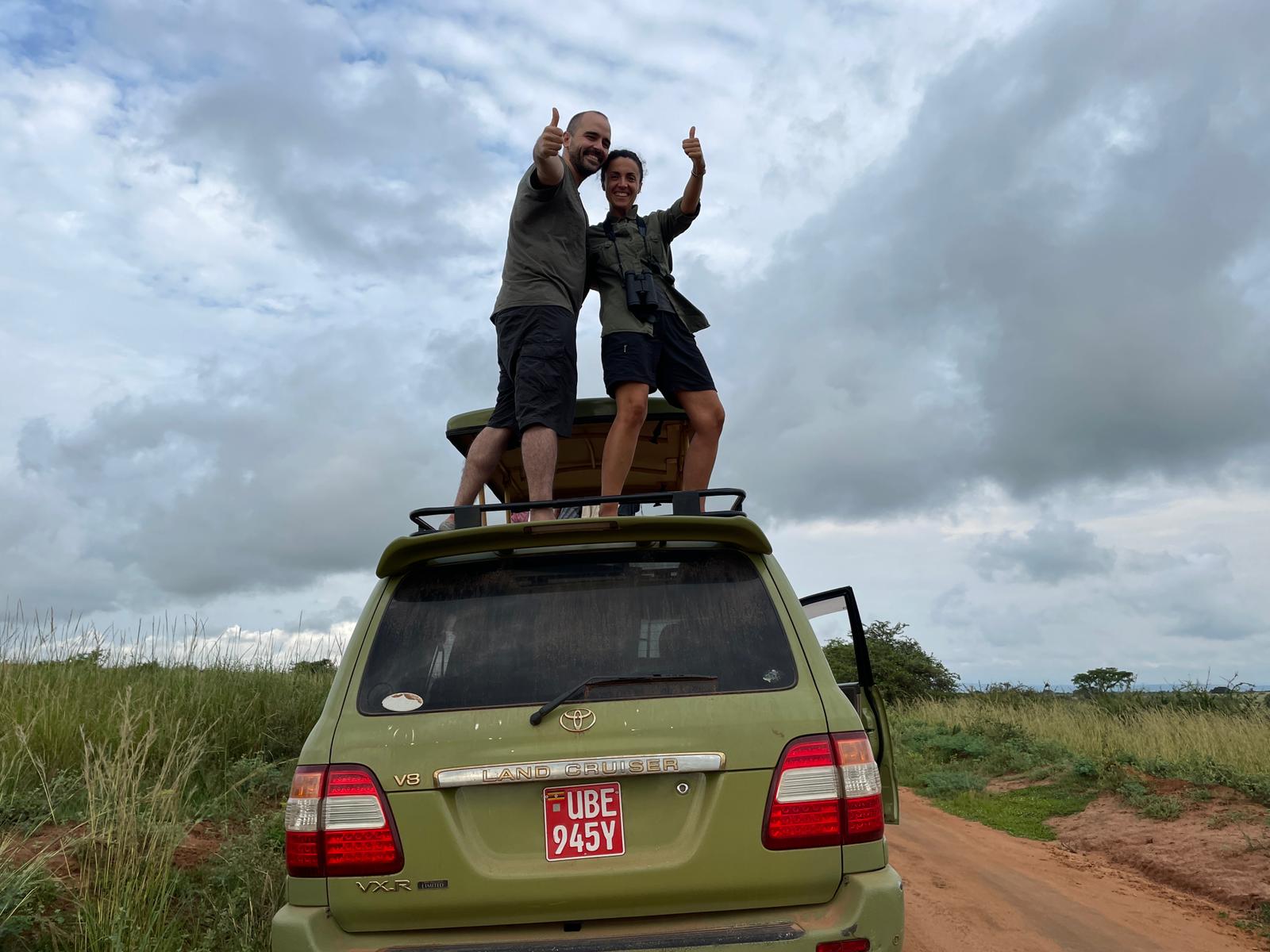 Self-Drive Rentals
Self-Drive Rentals
Self-drive rentals give you complete freedom to explore Uganda at your own pace. This option appeals to independent travelers who are comfortable navigating new road conditions and enjoy the flexibility of creating their own schedules.
Chauffeur-Driven Rentals
Many visitors opt for hiring a car with a driver, which eliminates navigation concerns and provides invaluable local knowledge. Drivers often double as informal guides, offering insights about wildlife, culture, and hidden gems that guidebooks might miss.
Vehicle Types to Consider
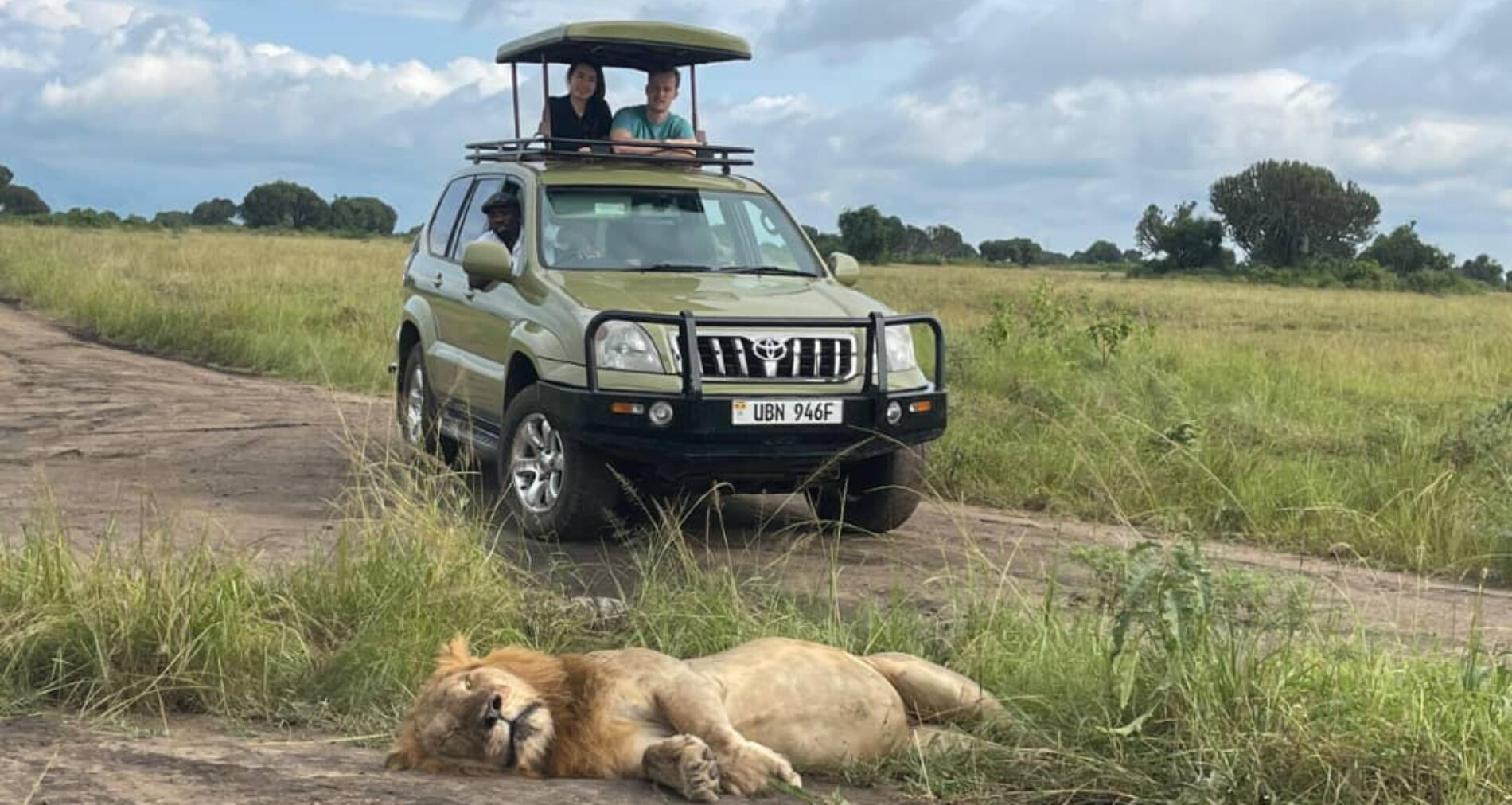 Economy Cars
Economy Cars
Suitable primarily for urban exploration around Kampala and Entebbe, economy cars are the most affordable option but have limited capability for exploring beyond well-maintained roads.
Mid-Size SUVs (Soft-Roaders)
Vehicles like the Toyota RAV4 or Honda CR-V offer better ground clearance than sedans while maintaining good fuel efficiency. These can handle somewhat rougher roads but aren’t designed for serious off-road conditions.
4×4 Vehicles
For most travel plans that include national parks, rural areas, or any exploration during rainy seasons, a proper 4×4 is essential. Popular options include:
- Toyota Land Cruiser: The gold standard for safari travel, offering exceptional reliability and off-road capability
- Toyota Fortuner: A comfortable mid-range option suitable for families and small groups
- Mitsubishi Pajero: A reliable alternative with good performance on challenging terrain
- Toyota Land Cruiser Prado: Balances comfort and off-road capability
- Toyota Hilux (Double Cab): Pickup trucks that offer durability and cargo space for camping equipment
Vans and Minibuses
For larger groups, vehicles like the Toyota Hiace or Coaster buses are available, though these generally come with drivers due to their size and specialized driving requirements.
Rental Costs
Rental prices vary based on vehicle type, rental duration, and season:
| Vehicle Type | Daily Rate (USD) | Weekly Rate (USD) | Monthly Rate (USD) |
|---|---|---|---|
| Economy Car | $40-60 | $250-350 | $800-1,200 |
| Mid-Size SUV | $60-90 | $350-550 | $1,200-1,800 |
| Standard 4×4 | $80-130 | $500-800 | $1,700-2,800 |
| Premium 4×4 | $150-250 | $900-1,500 | $3,000-5,000 |
| Chauffeur-Driven (add) | $30-50/day | $200-300/week | $700-1,000/month |
Additional costs to consider:
- Insurance: Basic coverage is typically included, but comprehensive insurance costs extra
- Mileage limits: Some rentals have daily allowances with surcharges for excess
- Border crossing fees: Required if planning to visit Rwanda, Kenya, or Tanzania
- Additional equipment: Roof racks, camping gear, child seats, etc.
- Fuel: Vehicles are usually provided with a full tank, to be returned full
Requirements for Renting
To rent a car in Uganda, you’ll need:
- Valid driver’s license: From your home country (must be in English or accompanied by an official translation)
- International Driving Permit (IDP): Highly recommended and sometimes required
- Passport: For identification verification
- Credit card: For security deposit (typically $500-1,500 depending on vehicle type)
- Minimum age: Usually between 23-25 years old
- Driving experience: Many companies require 2+ years of experience
For chauffeur-driven rentals, the documentation requirements are typically less stringent as you won’t be operating the vehicle.
Insurance Options
Most rental agreements include basic insurance coverage, but it’s important to understand what’s covered:
- Basic Insurance: Typically covers third-party liability and sometimes basic collision damage
- Comprehensive Insurance: Covers most damages to the rental vehicle with a reasonable excess
- Full Coverage: Eliminates or significantly reduces the excess payment for damages
- Personal Accident Insurance: Covers driver and passenger injuries
- Theft Protection: Coverage for vehicle theft (may have exclusions for negligence)
Read the fine print carefully regarding exclusions, particularly for undercarriage damage, water damage, or windscreen cracks – all relatively common issues on Ugandan roads.
Booking Process and Tips
- Research thoroughly: Compare prices, vehicle options, and company reviews
- Book in advance: Especially during peak tourist seasons (June-August, December-January)
- Confirm inclusions: Ensure clarity on what’s included in the quoted price
- Document the vehicle condition: Take photos or videos at pickup to avoid disputes about pre-existing damage
- Verify emergency protocols: Know what to do and whom to contact in case of breakdown or accident
- Arrange airport pickup: Most companies offer this service, sometimes at an additional cost
Road Conditions and Driving in Uganda
Understanding what to expect on Ugandan roads is crucial for safe travel:
Main Roads and Highways
Major routes connecting cities like Kampala, Entebbe, Jinja, and Mbarara are generally paved and in reasonable condition. The Northern Corridor route from Kenya through Uganda is well-maintained.
Secondary Roads
Roads to popular tourist destinations vary significantly in quality. Some, like the roads to Lake Mburo National Park, are paved, while others require careful navigation over dirt and gravel.
National Park Roads
Inside national parks, roads are typically unpaved and can be challenging, particularly in rainy seasons. Some areas in parks like Kidepo Valley or remote parts of Queen Elizabeth National Park require serious 4×4 capability.
Urban Driving
Kampala’s traffic congestion is notorious. Expect heavy traffic, unconventional driving norms, and the presence of boda-bodas (motorcycle taxis) weaving through traffic. Patience and defensive driving are essential.
Practical Driving Tips
- Drive on the left: Uganda follows left-hand traffic
- Carry proper documentation: Keep your license, rental agreement, and passport accessible
- Use GPS navigation: Download offline maps before your journey as signal can be unreliable
- Plan fuel stops: Petrol stations can be scarce in remote areas
- Daylight driving: Try to reach destinations before dark when possible
- Speed limits: Generally 100 km/h on highways, 80 km/h on rural roads, and 50 km/h in urban areas
- Police checkpoints: Remain courteous and have documentation ready
- Wildlife awareness: Be alert for animals crossing roads, especially near national parks
- Local SIM card: Purchase one at the airport for emergency communications
Breakdown and Emergency Procedures
Despite the best preparations, emergencies can happen. Most rental companies provide:
- 24/7 emergency hotline
- Roadside assistance (coverage areas may vary)
- Vehicle replacement (depending on your location and availability)
It’s advisable to keep emergency contacts readily available and understand your rental agreement’s provisions for breakdowns.
Popular Self-Drive Routes
Entebbe-Kampala-Jinja Loop (3-4 days)
Perfect for first-time visitors, covering urban experiences in Kampala, the source of the Nile in Jinja, and the shores of Lake Victoria.
Southern Circuit (7-10 days)
Kampala → Lake Mburo National Park → Queen Elizabeth National Park → Bwindi Impenetrable Forest → Lake Bunyonyi → Kampala
Northern Explorer (10-14 days)
Kampala → Murchison Falls National Park → Kidepo Valley National Park → Sipi Falls → Jinja → Kampala
Conclusion
Renting a car in Uganda opens up possibilities for experiencing this diverse country at your own pace. Whether you choose the independence of self-driving or the convenience of a chauffeur-driven experience, having your own vehicle allows you to immerse yourself in Uganda’s stunning landscapes and vibrant cultures on your own terms.
The right preparation, vehicle choice, and understanding of local conditions will help ensure your Ugandan road trip creates lasting memories for all the right reasons. From tracking mountain gorillas in misty forests to witnessing elephants against sunset-painted savannahs, the freedom of exploring Uganda by car offers an unmatched adventure in the heart of East Africa.
To rent a car in Uganda for self drive or driver-guided road trip, simply contact us now by sending an email to info@ugandasafarbookings.com or call us now at +256-700135510
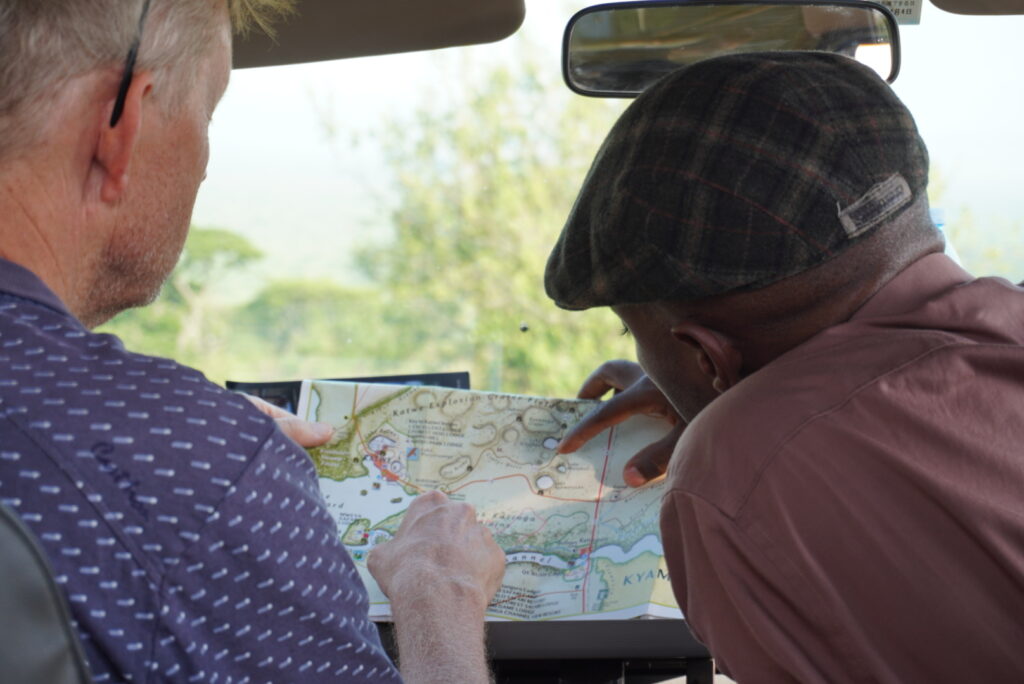
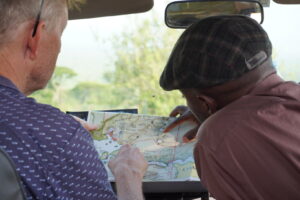
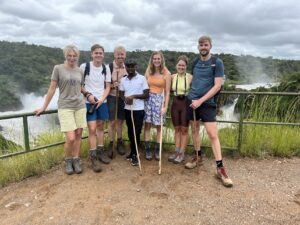
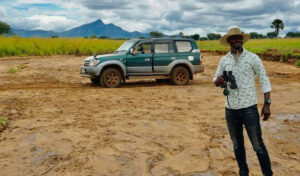
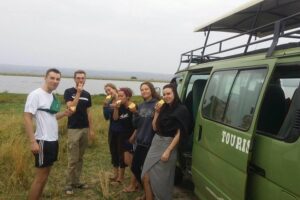
More Articles
Untamed Beauty: Safari Uganda with Expert Local Guides
What Makes A Safari Van The Ideal 4×4 For Safaris In Uganda
Top 4 Reasons For Hiring A Chauffeur In Uganda